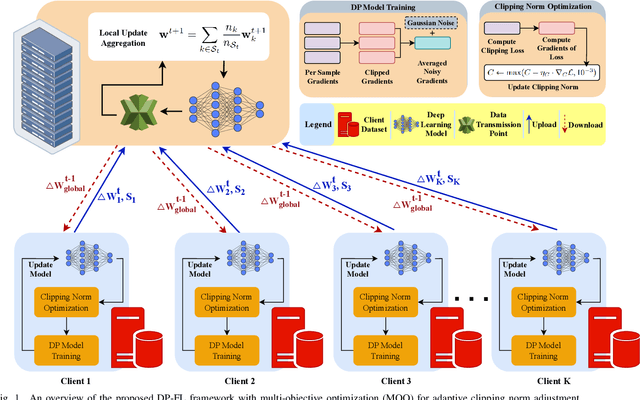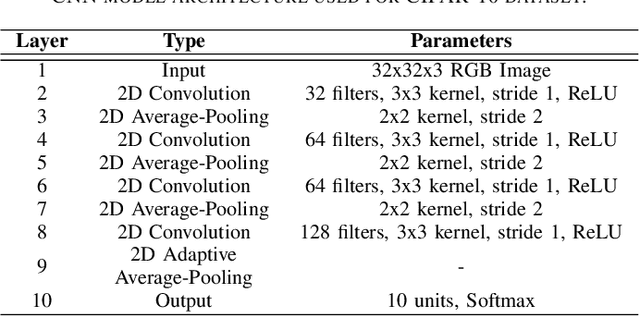Multi-Objective Optimization for Privacy-Utility Balance in Differentially Private Federated Learning
Paper and Code
Mar 27, 2025



Federated learning (FL) enables collaborative model training across distributed clients without sharing raw data, making it a promising approach for privacy-preserving machine learning. However, ensuring differential privacy (DP) in FL presents challenges due to the trade-off between model utility and privacy protection. Clipping gradients before aggregation is a common strategy to limit privacy loss, but selecting an optimal clipping norm is non-trivial, as excessively high values compromise privacy, while overly restrictive clipping degrades model performance. In this work, we propose an adaptive clipping mechanism that dynamically adjusts the clipping norm using a multi-objective optimization framework. By integrating privacy and utility considerations into the optimization objective, our approach balances privacy preservation with model accuracy. We theoretically analyze the convergence properties of our method and demonstrate its effectiveness through extensive experiments on MNIST, Fashion-MNIST, and CIFAR-10 datasets. Our results show that adaptive clipping consistently outperforms fixed-clipping baselines, achieving improved accuracy under the same privacy constraints. This work highlights the potential of dynamic clipping strategies to enhance privacy-utility trade-offs in differentially private federated learning.
 Add to Chrome
Add to Chrome Add to Firefox
Add to Firefox Add to Edge
Add to Edge